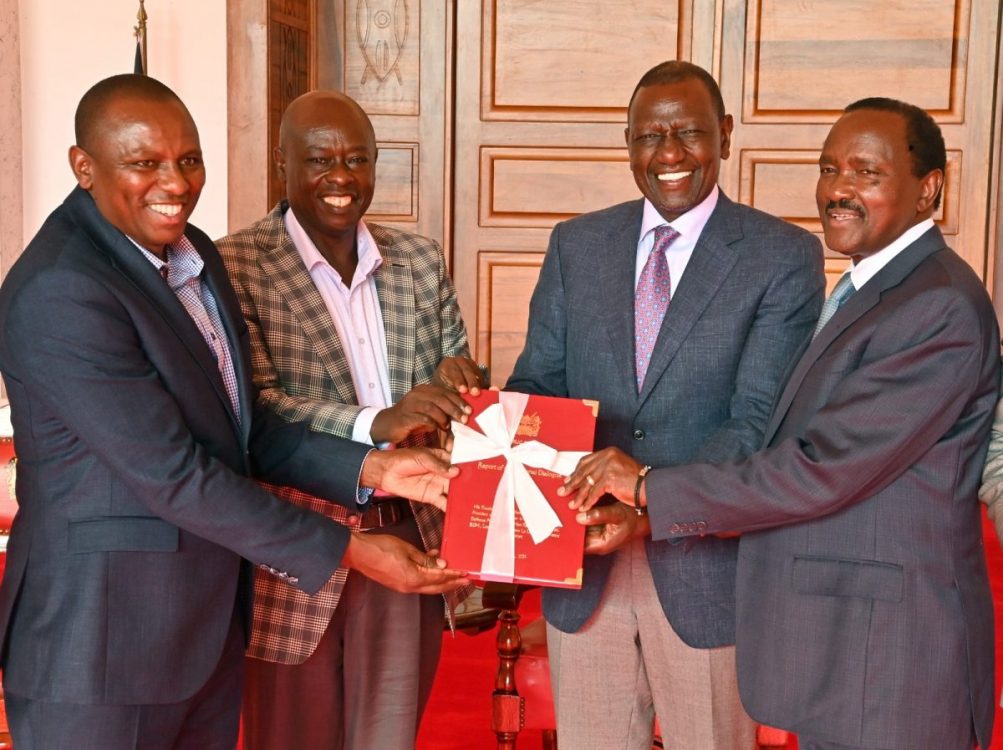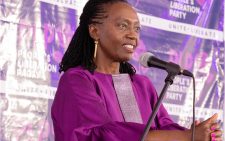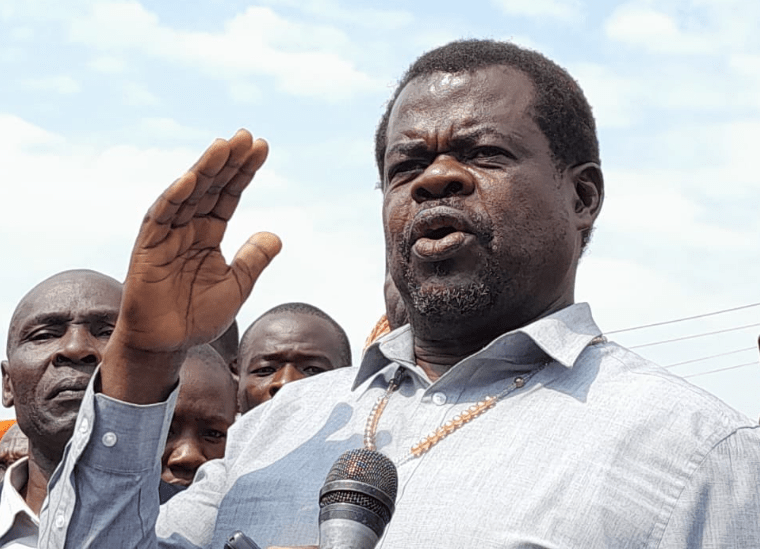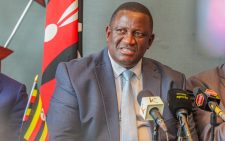NADCO report should help restore political sanity

It’s now official. President William Ruto and Opposition leader Raila Odinga have agreed to suspend the protracted political hostilities between their rival camps.
On Friday, the two principals formally received the National Dialogue Committee (NADCO) report from the co-chairs of the Kenya Kwanza and Azimio la Umoja teams that negotiated the political truce.
Whether the NADCO report will live up to the expectations of citizens, exhausted by the relentless polarized politics that have for too long characterized the national political landscape, remains to be seen.
One thing is certain though. The committee has managed to breach a barrier that if not just for political expediency, also gives fleeting hope for sanitization of Kenya’s murky politics and an opportunity to revisit the letter and spirit of the Constitution.
The NADCO report provides prospects for sober reflection on the troubles that continue to bedevil the nation. There currently exists a major deficit of equity and inclusion in the national ethos and constitutional compliance in the three arms of government.
Parliament has particularly come under sharp scrutiny on the execution of its representation, legislation and oversight roles owing to perceived subservience to the Executive and the composition of its leadership since the 2022 General Election.
Immediately he was declared winner, President Ruto moved with alacrity to lure legislators allied with Azimio and independents to Kenya Kwanza, tilting the balance in his favour in both the National Assembly and the Senate.
Comfortable in this political engineering, he vowed on the parliamentary route when he acceded to national dialogue in response to demands from a majority of Kenyans and the international community following the Raila-led mass protests.
Topping the protest demands were the high cost of living and electoral justice arising from the disputed presidential election. While the negotiations failed to agree on the cost-of-living issue, the committee was able to reach a consensus on five key areas.
Relying on his vast legislative and opposition trenches experience, Raila rode the tiger to tame the hawkish elements in Ruto’s camp and achieve the main objective of his mass protests – electoral justice.
He might have lost an election he insists he won. He might have disappointed legions of supporters who feel he squandered a golden chance to ascend to the highest office in the land, but he managed to extract a major victory from his erstwhile rival.
The committee recommended the restructuring and reconstitution of the Independent Electoral and Boundaries Commission and audit of the 2022 presidential election.
The 10-member committee the two principals brought to the negotiating table had the broadest political mandate since the Bomas of Kenya National Constitutional Conference 20 years ago, which conceived the Constitution of Kenya, 2010.
In a display of political maturity prevailing over a toxic environment engulfing the nation, NADCO managed to achieve its goal of “facilitating dialogue and consensus building and recommend appropriate constitutional, legal and policy reforms on issues of concern to the people.”
With Ruto pledging to implement the report “to its logical conclusion” and Raila urging the legislative proposals it contains to be implemented “without alterations”, the ball is now in the legislators’ court.
Parliament must redeem its tainted image in the eyes of the public by harmonising the political maturity fostered in the NADCO report along the path of national healing, reconciliation, justice, equity and inclusion.
—The writer comments on governance and constitutional affairs
—albertoleny@gmail.com















